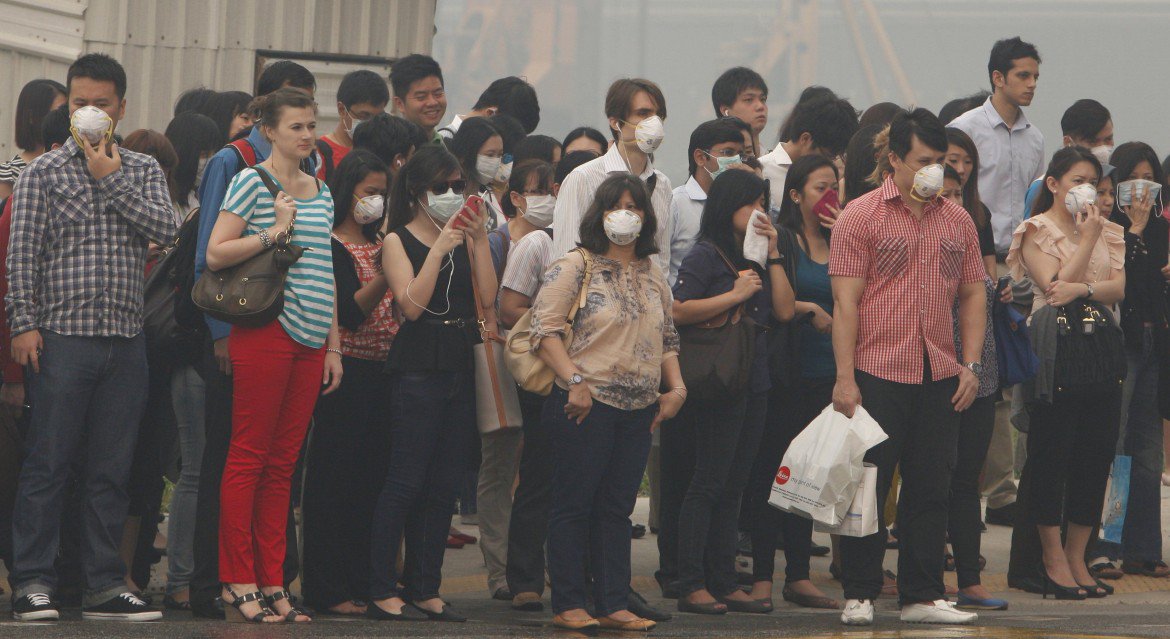Climate change
Protagonists missing from climate ceremony as countries refuse to ratify COP21
The signing of the COP21 agreement in New York today is overshadowed by the fact that many countries are struggling to ratify the accord.

Four months after the COP21 in Paris, there’s a grand ceremony today at the United Nations to formalize the commitments of 146 countries to cope with global warming. The number of countries gathered sets a new historical record — 119 countries were present for the Montego Bay Convention for the signing of the law of the sea. Fifty-five heads of state have announced their attendance.
But despite the cheer, scientists and the IPCC continue to sound the alarm on global warming and its consequences: There are already 20 million climate refugees around the world, and yet today will just be another stage of dialogue, not action. We still have to wait for 55 countries — accounting for 55 percent of greenhouse gas emissions — to ratify the COP21 agreement before it comes into force.
We’re still far from that point. Even though 162 countries committed to to the terms, out of 195 present in Paris in December, a dozen — among them the largest: the U.S., China, Canada — have promised to ratify within a year. For the moment, only three countries have done so, anticipating the U.N. ceremony: Switzerland, the Marshall Islands and Palau.
In France, the parliament vote will take place May 17, and it would be the first E.U. country to hold a vote. The European Union, which has long prided itself on being at the forefront of the fight against greenhouse gas emissions, is now part of the problem. The Commission negotiated at the COP21 on behalf of the 28 members, but the ratifications will take place at national level, and among the countries there are vast differences in position. Romania and Poland, for example, remain dependent on coal and are reticent to ratify, and Italy is deeply invested in offshore drilling.
The U.N. believes, however, that the global agreement would take force regardless of what the E.U. countries do. More important is what happens in the U.S. and China, collectively responsible for 38 percent of emissions. Their movement toward clean energy would persuade other nations that cutting CO2 won’t damage their economies and that fossil fuels are not the future of energy.
From an economic standpoint, in fact, the turning point was 2014. According to IEA data, investments in renewable energies that year were twice those in fossil fuels.
These investments are up sharply since 2013. According to UNDP data, the total was $286 billion in 2015, with China the leading investor in solar and wind energy ($102 billion, one third of the total). Emerging countries exceeded developed ones, investing $156 billion versus $130 billion. In the U.S., the two largest coal companies, Peabody Energy and Arch Coal, are bankrupt. Also in the U.S., since 2000 greenhouse gas emissions decreased by 6 percent, while GDP grew by 28 percent.
Yet many countries remain unconvinced. Russia is responsible for 5.2 percent of emissions; Brazil, with 2.3 percent, is in the middle of political chaos; and Japan (3 percent), after the Fukushima catastrophe, is more dependent on fossil fuels.
“The COP21 was a success,” said the president of the Framework Convention on Climate Change, Christiana Figueres of Costa Rica. “But this was the easy part.”
The U.N. is critical of the fact that all the protagonists of COP21 in Paris have already been replaced or will be shortly. Laurent Fabius, who in December was the French foreign minister and who beat the hammer to mark the conclusion of the agreement, was not even invited to the ceremony in New York today. That responsibility went to Ecology Minister Ségolène Royal, who insisted on discarding Fabius (now the head of the Constitutional Council) and placing herself at the head of French environmental diplomacy.
“I have not received the invitation,” Fabius said. “There must be a problem at the post office.”
Royal has also tried to block Laurence Tubiana, who headed French negotiations at COP21, but she ultimately relented. The term of U.N. Secretary General Ban Ki-Moon, who was determined to see COP21 succeed, expires early 2017. And in the U.S., the head of the delegation Todd Stern has already left, while Secretary of State John Kerry will go out with Barack Obama in January 2017.
Originally published at http://ilmanifesto.info/il-clima-val-bene-unaltra-cerimonia/ on 2016-04-22
